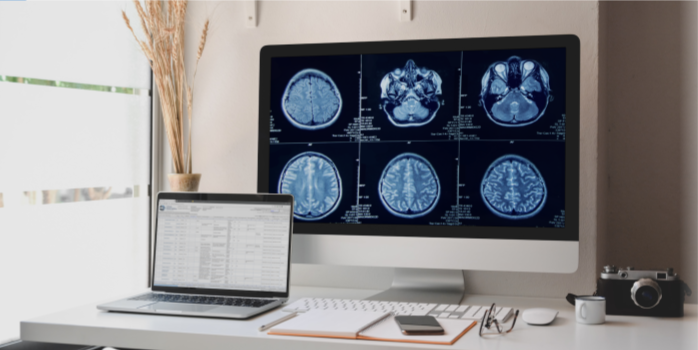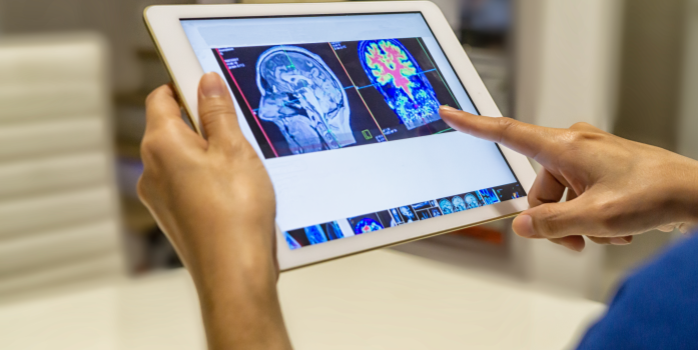
By: Michael Pineda, MD, FPCR
By: Lifetrack Medical Systems with Mari Grace Lee, MD, DPBR; Michael Pineda, MD, FPCR; Genuina Ranoy, MD, FPPA, FPSCAP; Jacqueline Austine Uy, MD, FPCR, FCTMRI
On September 12, Lifetrack Medical Systems and the Philippine College of Radiology - National Capital Region chapter, co-hosted a webinar around the theme of “Work-Life Balance During COVID”. One of the sessions was a talk on “Mental Wellness and the Pandemic” and the article below features highlights of the discussion.
No one is spared from the effects
You may not get COVID-19 but the constant worry and the impact of the lockdown measures take a mental toll on almost everyone. This is even more true for health care workers, especially radiologists who need to go to the hospitals or clinics to review their cases.
Staying grounded and maintaining healthy habits can help you get through this tough season.
![[PHOTO] 201008 PH Blog 3 Top 10 Mental Wellness 700x350](https://www.lifetrackmed.com/hs-fs/hubfs/RRR%20Blog%20Media/%5BPHOTO%5D%20201008%20PH%20Blog%203%20Top%2010%20Mental%20Wellness%20700x350.png?width=698&name=%5BPHOTO%5D%20201008%20PH%20Blog%203%20Top%2010%20Mental%20Wellness%20700x350.png)
Here are the top 10 best practices on mental wellness, as shared by our experts in a webinar on work-life balance during the pandemic.
#1 Manage yourself when you consume information.
Radiologists, more often than not, are visual creatures. We don’t shy away from screen time and this includes watching the news on TV or scrolling through your social media feed. Regulate how you expose yourself to information. Don’t get carried away by establishing time dedicated to scour news and information.
#2 Do the things you love.
Find time to rest and do the things you love. For those working from home, seize the opportunity to develop your hobby, bond with your family, and engage in physical activities, to name a few.
#3 Draw the line on things you can and cannot control.
Focus your energies on the things that you can act on. Learn to know the difference between things that you can and cannot control.
#4 Socialize.
Make do with what’s allowed during the pandemic, be it virtual gatherings or a simple message to your family and friends, these can keep connections alive and help you through this challenging period.
#5 Establish a routine. Include breaks.
When you work from home, it’s tempting to get sucked into reading cases, or conversely, spend more time doing other things like online gaming or watching shows. The line between work and play gets blurred. Set aside time for both. Find a routine that works for you and this should include breaks.
Interested in LifeSys for teleradiology? Learn more about the product here.
#6 Exercise regularly.
Find an exercise routine that suits your schedule. Even simple activities like breathing exercises and progressive muscle relaxation help promote brain-derived neurotrophic factor (BDNF) production.
#7 Manage your workstation.
Clear clutter and maintain a pleasant work environment. If you’re reading cases from home, find the best place and set-up that’s conducive for your work. If you can, invest in workstation essentials with good ergonomics.
#8 Practice self-compassion.
One of the ways to do this is to be mindful. That means recognizing when you are struggling without being judgmental or critical.
#9 Seek professional help if needed.
When other methods don’t seem to work and the symptoms of stress affect you more deeply, consider seeking professional help so you can be guided accordingly.
#10 Know that you’re not alone.
As we’ve mentioned before, no one is spared from the effects of COVID-19. Other people can offer support and be with you during this time.
Read the next article - How teleradiology has made all the difference in my work and life
About the authors:
Mari Grace Lee, MD, DPBR; Michael Pineda, MD, FPCR; and Jacqueline Austine Uy, MD, FPCR, FCTMRI were featured as panelists in the Philippine College of Radiology - National Capital Region chapter’s inaugural webinar, “Be Well, Do Well - Helping Radiologists Survive and Thrive Despite COVID-19”.
Genuina Ranoy, MD, FPPA, FPSCAP was also featured in the same webinar and shared her expertise in a talk entitled, “Mental Wellness and the Pandemic”.

By: Michael Pineda, MD, FPCR

By: Lifetrack Medical Systems with Mari Grace Lee, MD, DPBR; Michael Pineda, MD, FPCR; Jacqueline Austine Uy, MD, FPCR, FCTMRI